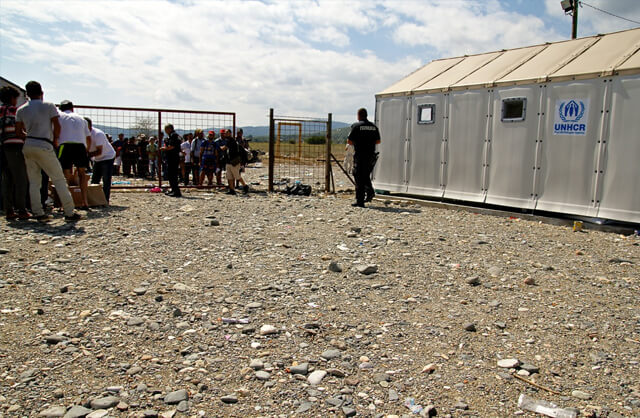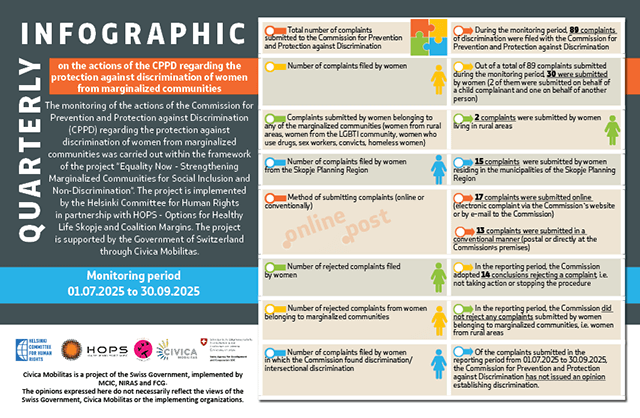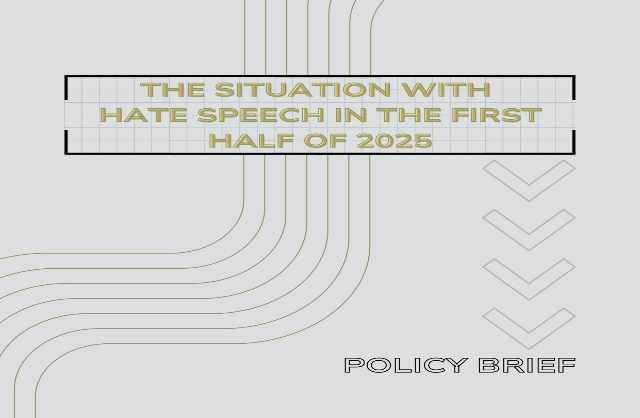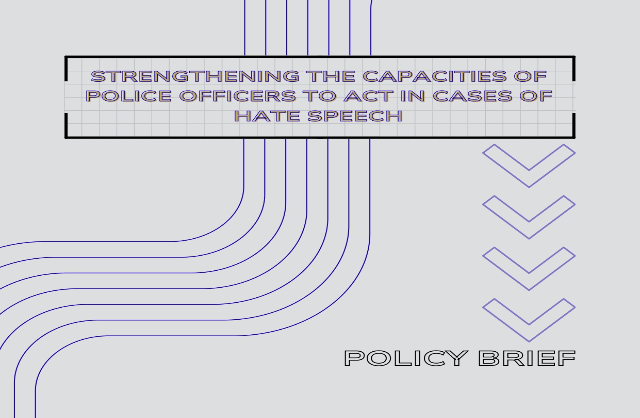The situation at the border crossings Gevgelija and Kumanovo for the period: 28.03.2016 – 03.04.2016
April 6, 2016

The weekly report on the situation at the border crossings Gevgelija and Kumanovo includes the following topics: Available facilities and conditions at the camp and Institutional treatment.
Gevgelija
Available facilities and conditions
In the course of this week, once again not a single refugee entering the territory of the Republic of Macedonia was registered.
4 new containers were delivered to the camp for accommodation of priority cases, i.e. women and unaccompanied children. There is a recurrent problem with all the recently set-up containers where families have been accommodated, as they are not equipped with heating. The refugees complain that the nigh hours can be particularly cold.
Lampposts have been set up along the path leading to the camp from the fence at Idomeni. The path now leads to the previously set up containers for registration of refugees at the camp entrance from the side of the cross-border area.
Institutional treatment
The cases of scabies which occur in the camp are physically separated from the rest of the groups, in order to prevent the disease from spreading.
The biggest problem in the camp occurs with the distribution of food. Recently, the NGOs and charity organizations have been banned from handing out food, and this obligation was partially taken over by the Red Cross, while they are also being served food in the kitchen which is under the authority of the Ministry of Labour and Social Policy. However, the refugees complain that the food they were served during the past week was bland, dry and poor in vitamins, as well as insufficient to feed all, and as a result, many of them are hungry. The lack of food for children is particularly striking. In one case in the course of the week, they were given food which was not adequate according to their religious belief.
From the findings from the villages in the vicinity, there is an increasing number of smuggling groups and refugees illegally moving through the country.
Kumanovo
Available facilities and conditions
A certain number of refugees are still accommodated in camping tents set up on the ground.
The hygiene in the camp is at an alarming level. Various diseases, viruses or scabies frequently occur.
Institutional treatment
The asylum request procedure in the camp has completely stopped functioning for some time already. The refugees are given various excuses just to avoid the submission of an asylum request, and make the refugees give up on their intent.
The Helsinki Committee warns that the non-compliance with the asylum-seeking procedure constitutes a violation of the refugees’ human rights. Therefore we appeal to the competent institutions to urgently and immediately make it possible for people wishing to seek asylum to be able to do so.
It can be noticed in the camp that this situation affects the psychological state of the refugees. Depression can often be observed among the refugees in the camp. Therefore, the Helsinki Committee recommends hiring a psychologist on -field, in the camp, who will aid those in need to cope with the situation they have found themselves in.
The distribution of food in the camp in Tabanovce is a serious problem after the practice of NGOs distributing food was changed, and now the food is only handed out by the Red Cross and the Ministry of Labour and Social Policy. The refugees often complain of the bad and insufficient food, and more recently of the lack of water as well.
The Helsinki Committee recommends that the old practice of having NGOs and charity organizations distributing food to be re-established, or an alternative solution that will satisfy the needs for food in the camp to be introduced.
 This report is made possible by the generous support of the Foundation Open Society Institute (FOSI) within the project „Improvement of the rights protection for migrants and asylum seekers in the Republic of Macedonia“. The contents are the responsibility of the Helsinki Committee for Human rights of the Republic of Macedonia and do not necessarily reflect the views of FOSI.
This report is made possible by the generous support of the Foundation Open Society Institute (FOSI) within the project „Improvement of the rights protection for migrants and asylum seekers in the Republic of Macedonia“. The contents are the responsibility of the Helsinki Committee for Human rights of the Republic of Macedonia and do not necessarily reflect the views of FOSI.


